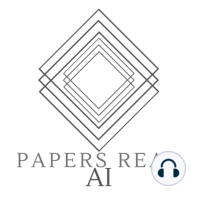53 min listen

DSPy: Compiling Declarative Language Model Calls into Self-Improving Pipelines
DSPy: Compiling Declarative Language Model Calls into Self-Improving Pipelines
ratings:
Length:
48 minutes
Released:
Jan 31, 2024
Format:
Podcast episode
Description
The ML community is rapidly exploring techniques for prompting language models (LMs) and for stacking them into pipelines that solve complex tasks. Unfortunately, existing LM pipelines are typically implemented using hard-coded"prompt templates", i.e. lengthy strings discovered via trial and error. Toward a more systematic approach for developing and optimizing LM pipelines, we introduce DSPy, a programming model that abstracts LM pipelines as text transformation graphs, i.e. imperative computational graphs where LMs are invoked through declarative modules. DSPy modules are parameterized, meaning they can learn (by creating and collecting demonstrations) how to apply compositions of prompting, finetuning, augmentation, and reasoning techniques. We design a compiler that will optimize any DSPy pipeline to maximize a given metric. We conduct two case studies, showing that succinct DSPy programs can express and optimize sophisticated LM pipelines that reason about math word problems, tackle multi-hop retrieval, answer complex questions, and control agent loops. Within minutes of compiling, a few lines of DSPy allow GPT-3.5 and llama2-13b-chat to self-bootstrap pipelines that outperform standard few-shot prompting (generally by over 25% and 65%, respectively) and pipelines with expert-created demonstrations (by up to 5-46% and 16-40%, respectively). On top of that, DSPy programs compiled to open and relatively small LMs like 770M-parameter T5 and llama2-13b-chat are competitive with approaches that rely on expert-written prompt chains for proprietary GPT-3.5. DSPy is available at https://github.com/stanfordnlp/dspy
2023: O. Khattab, Arnav Singhvi, Paridhi Maheshwari, Zhiyuan Zhang, Keshav Santhanam, Sri Vardhamanan, Saiful Haq, Ashutosh Sharma, Thomas T. Joshi, Hanna Moazam, Heather Miller, Matei Zaharia, Christopher Potts
https://arxiv.org/pdf/2310.03714.pdf
2023: O. Khattab, Arnav Singhvi, Paridhi Maheshwari, Zhiyuan Zhang, Keshav Santhanam, Sri Vardhamanan, Saiful Haq, Ashutosh Sharma, Thomas T. Joshi, Hanna Moazam, Heather Miller, Matei Zaharia, Christopher Potts
https://arxiv.org/pdf/2310.03714.pdf
Released:
Jan 31, 2024
Format:
Podcast episode
Titles in the series (100)
Secrets of RLHF in Large Language Models Part I: PPO: Large language models (LLMs) have formulated a blueprint for the advancement of artificial general intelligence. Its primary objective is to function as a human-centric (helpful, honest, and harmless) assistant. Alignment with humans assumes paramoun... by Papers Read on AI